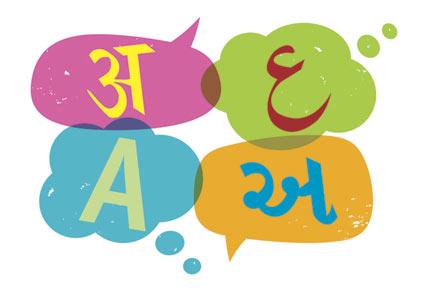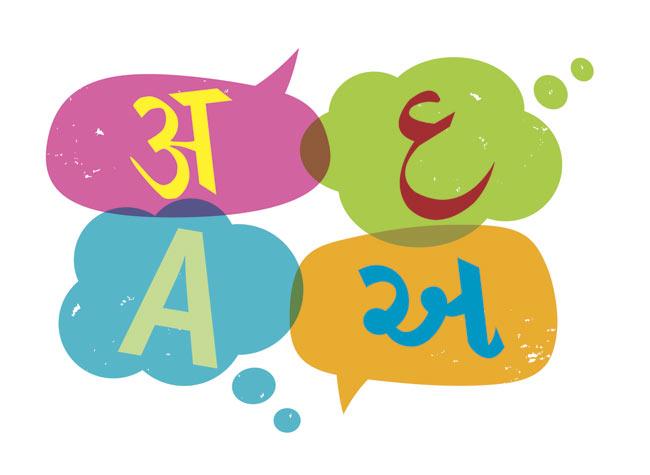Why does language exist? For functional communication? Or is there some daily worth in its beauty? Is it ‘best’ when most correct? Or it is language, as the linguistic historian Ganesh Devy has said “most beautiful when it is wrong, which is why poets work to break language.”

![]() Why does language exist? For functional communication? Or is there some daily worth in its beauty? Is it ‘best’ when most correct? Or it is language, as the linguistic historian Ganesh Devy has said “most beautiful when it is wrong, which is why poets work to break language.”
Why does language exist? For functional communication? Or is there some daily worth in its beauty? Is it ‘best’ when most correct? Or it is language, as the linguistic historian Ganesh Devy has said “most beautiful when it is wrong, which is why poets work to break language.”
We miss the classicality of Urdu in our film song lyrics today — the depth and flexibility of its literary tradition, its words for certain nuanced emotions, the pleasure of its rhythms and sounds. On the other hand, we now enjoy the increasingly inventive use of Hinglish, or other mixed languages. The playfulness, the inter-lingual puns, the mischievous verbal matchmaking that pinpoint contemporary experience which poets from Amir Khusro to Gulzar have excelled at.
ADVERTISEMENT

Illustration/Amit Bandre
The symmetries of “correct” speech and the fecund inventiveness of slang are both a deep engagement with language from two different perspectives — the classical and the experimental, let’s say. Perspectives can become distorted. So, a stickler for canonical usage is often mocked as pedantic by the hip. People with ‘wrong’ language are often humiliated by privileged snobs.
However, this has been further distorted today to mean that caring about language at all is a sign of snobbery. That is like hating all love songs because you hate Celine Dion. An example would be the kind of discussion that often gathers around a writer such as Chetan Bhagat, indeed one he carefully ensures. He deflects any critique of his writing as snobbery, thus positing himself as the voice of the tentative but aspirational English-speaking masses.
Those who offer us this limited view of language, actually seek to limit our aspirations. They tell us aspiration is about material progress, which it is. We all want a comfortable present and a secure future, the possibility of luxury. But are these the only aspirations we might have? After all, it is also an aspiration to speak beautifully, express ourselves precisely, acquire discernment, have conversations and connections. We also aspire to transcend our material existence through aesthetic and knowledge.
Language is the holder of these aspirations, for it literally gives a meaning to our lives. In exploring the limits of how we can stretch language, we also explore the limits of our ability to create and connect. Many English expressions commonly used today, for example, “a laughing stock”, “in a pickle”, “send him packing” were coined by Shakespeare. Language leaves us richer, not poorer.
The functional definition of aspiration pushes for structural disengagement with language. With English becoming India's link language, the number of children going to English medium schools has gone up by 274 per cent between 2003 and 2011. Discouraged from proficiency in their mother tongue, learning from half-skilled teachers, these are students whose roots in all languages are shaky. Last month the state government announced that Class IX students can now choose a vocational skill instead of studying a second language.
These decisions may be rooted in a pragmatics of progress which is fair enough but they also seem to happen by undermining the value of language. Since language is the holder of ideas, to become disengaged with language means to become disengaged with the world of concepts and connections. We become functional, literate, but also literal, unable to distinguish complexity of meanings, implication, satire. We become unable to distinguish between propaganda and propositions. Our arguments turn into shrill contests.
In his Teacher’s Day speech, our prime minister told students that they did not need to worry about the big picture. No worries. With a language of disconnections rather than a facility of connection, we can be assured they won’t.
Paromita Vohra is an award-winning Mumbai-based filmmaker, writer and curator working with fiction and non-fiction. Reach her at www.parodevi.com. The views expressed in this column are the individual’s and don’t represent those of the paper.
 Subscribe today by clicking the link and stay updated with the latest news!" Click here!
Subscribe today by clicking the link and stay updated with the latest news!" Click here!







